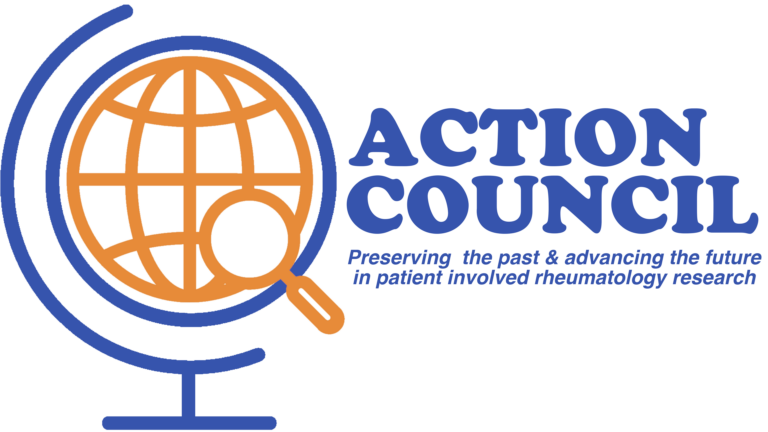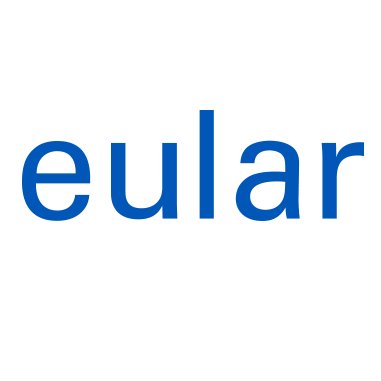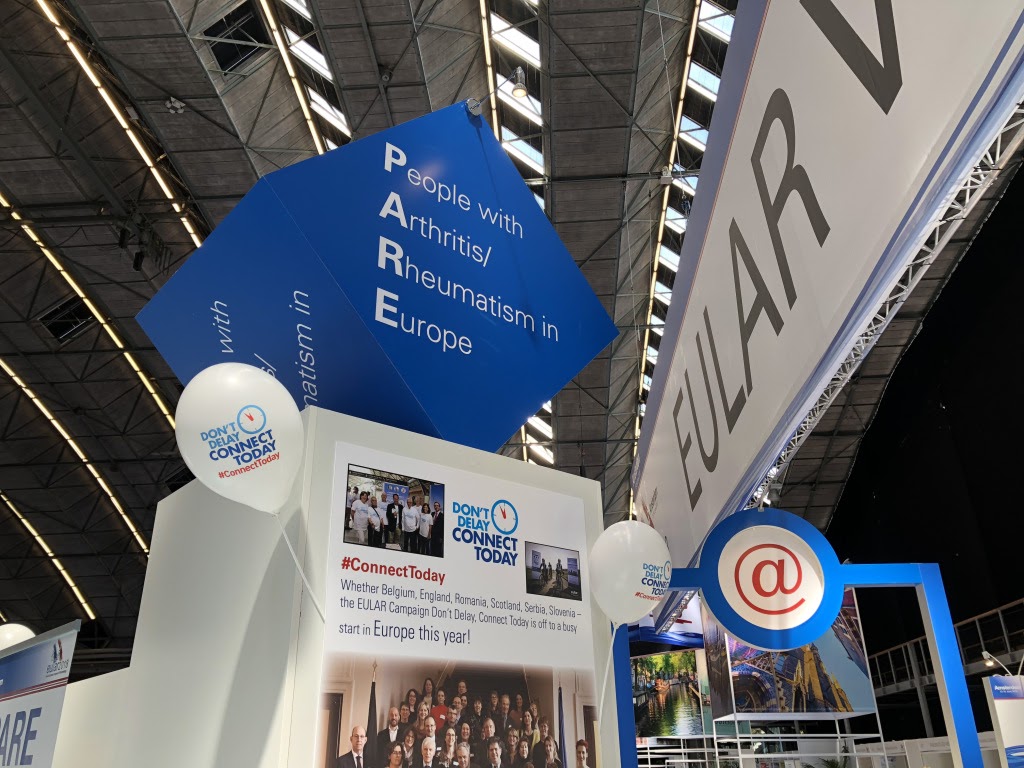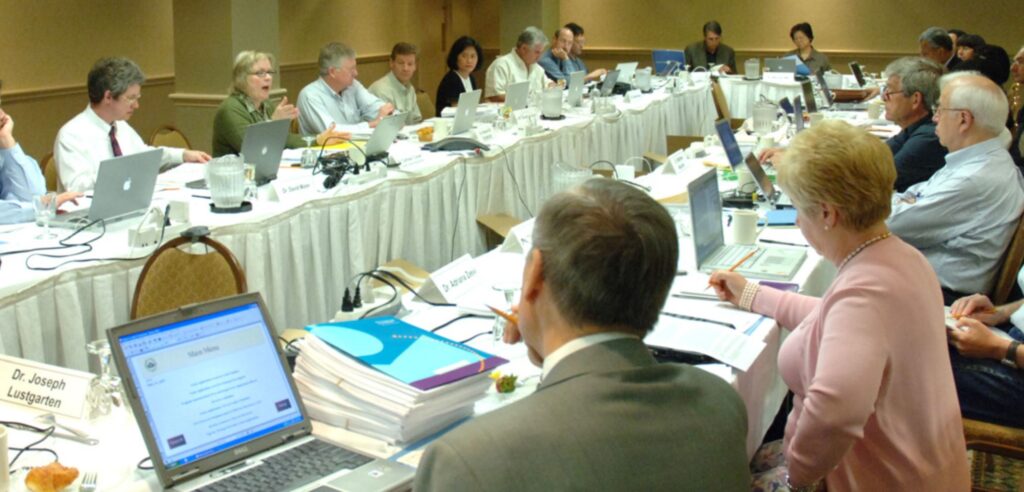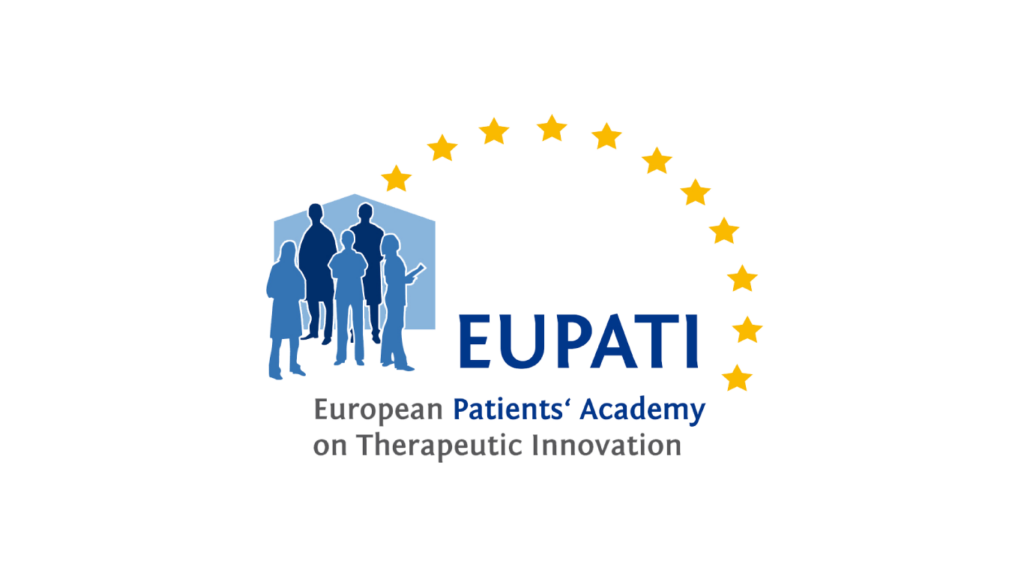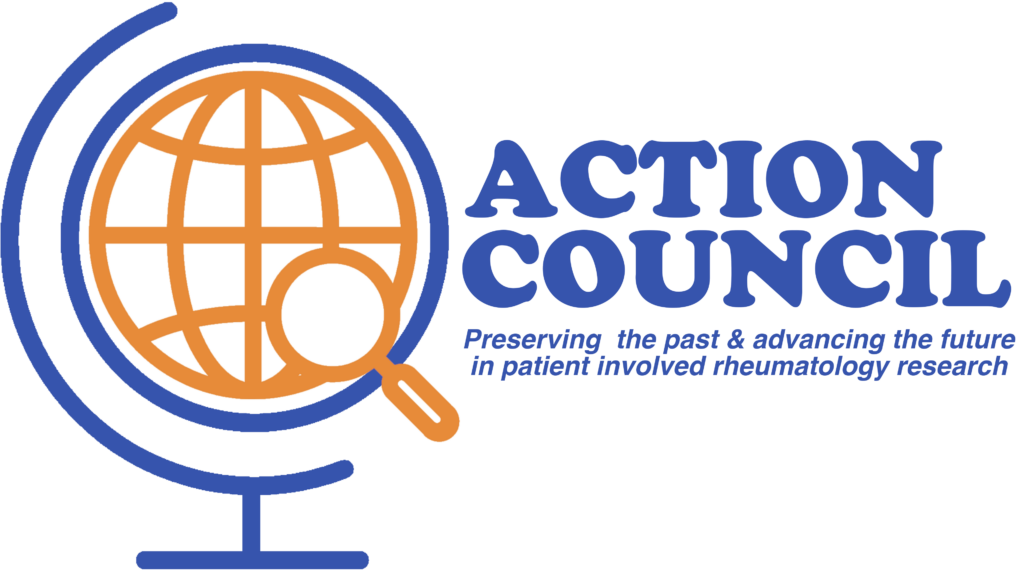Health Charities (Patient driven organizations or societies) Pathway
Health Charities (Patient driven organizations or societies)

EULAR Congress Inclusion of Patients
- 1973: In 1973, “Social Leagues” – which were the patient organizations – officially joined the European Alliance of Associations for Rheumatology (EULAR)EULAR is the organization that represents people with arthritis/rheumatism, health professionals (HPR), and scientific societies of rheumatology of all the European nations. The aims of EULAR are to reduce the burden of rheumatic diseases on the individual and society and to improve the treatment, prevention, and rehabilitation of musculoskeletal diseases. To this end, EULAR fosters excellence in education and research in the field of rheumatology. It promotes the translation of research advances into daily care and fights for the recognition of the needs of people with musculoskeletal diseases by the governing bodies in Europe. As such, they have always had their own educational program at the annual EULAR Congress meeting, but in the earlier years, the symposia they organized was mostly independent of the other congress sessions. eular.org which is now the European League Against Rheumatism.
- 1991: The EULAR Congress in Budapest marks a change in the goal to implement more comprehensive programs organized by the Social Leagues, including more collaboration with health professionals.
It was not until 2008, after the EULAR Congress in Paris, where patient organizations merged into EULAR, becoming EULAR PARE (People with Arthritis/Rheumatism in Europe)EULAR PARE is the Committee within EULAR comprised of representatives and musculoskeletal user groups around Europe to work together towards improving the quality of life for people in Europe living with these conditions, with the vision to empower and help them lead full and independent lives.
www.eular.org/pare.cfm
For decades, EULAR PARE has featured patient posters dedicated to education and advocacy, and later an increasing number of abstracts and program sessions on collaborative research.
CoPI: Conference participant
Context: Poster presentation
Rheumatology guidance begins
- 2005: Cochrane Musculoskeletal (CM)Cochrane Musculoskeletal (CM) is made up of health care professionals, researchers and consumer representatives that belong to Cochrane, an international, non-profit organization that aims to help people make well-informed decisions about health care by preparing, maintaining and promoting reviews on the effects of health care treatments. They produce reliable, up-to-date reviews of interventions for the prevention, treatment or rehabilitation of musculoskeletal disorders in the form of systematic reviews. CM is also dedicated to making our systematic reviews available to those interested in treatments for musculoskeletal diseases (dissemination). In 1993, they formed a Consumer Group (CMSG), enlisting patient systematic reviewers to join health care professionals and researchers belonging to Cochrane. Canada musculoskeletal.cochrane.org develops guidance for systemic review authors and for building partnerships in research.Consumer‐driven health care: Building partnerships in research, 2005. Shea B, Santesso N, Qualman A, Heiberg T, Leong A, Judd M, et al. Consumer-driven health care: building partnerships in research. Health Expectations 2005;8(4):352-9.
musculoskeletal.cochrane.org
Download PDF
- 2006: Cochrane Musculoskeletal Consumer Group (CMSG)The CMSG formed in 1993, enlisting patient systematic reviewers to join health care professionals and researchers belonging to Cochrane. “The feedback provides a layperson’s perspective to complement the feedback provided by our clinical experts.”musculoskeletal.cochrane.org develops initial recommendations to aid knowledge translation and exchange between clinicians and consumersSantesso N, Maxwell L, Tugwell PS, Wells GA, O’connor AM, Judd M, Buchbinder R. Knowledge transfer to clinicians and consumers by the Cochrane Musculoskeletal Group. J Rheumatol. 2006 Nov;33(11):2312-8. PMID: 17086612.. These were updated in 2014.
- 2008: Assessment of SpondyloArthritis International SocietyAssessment of SpondyloArthritis International Society is an international group of experts in the field of spondyloarthritis.
asas-group.org/European Alliance of Associations for Rheumatology European League Against Rheumatism (EULAR) aims to reduce the burden of rheumatic diseases on the individual and society and to improve the treatment, prevention, and rehabilitation of musculoskeletal diseases.
eular.org (ASAS/EULAR) collaborated with patients to translate recommendations for the management of ankylosing spondylitis for the first time into a language easily understood by patients.
CoPI: Advisory panels, consumer reviewers
Tools: Guidance documents – patient-researcher engagement; Recommendations – dissemination
Context: Systemic literature reviews, lay summaries, guideline development, dissemination (knowledge translation)
EULAR PARE Established
www.eular.org/pare.cfm. In this year it was also decided that PARE members should be user-led organizations. This was put in writing through a the publication of PARE Value Principles. At this time, health professionals also became their own Standing Committee. This was the beginning of the three pillars of EULAR, which still exist today.
Since this time, EULAR PARE has featured patient posters dedicated to education and advocacy, and later an increasing number of abstracts and program sessions on collaborative research.
CoPI: Conference participant
Context: Poster presentation
Experience working with patients in research leads to guidance for best practices
As a few years have passed since patient engagement in rheumatology began, guidance and recommendations are developed based on lessons learned.
- 2010: Patient Research Partner (PRP): As a result of patient-researcher collaboration with Outcome Measures in Rheumatology (OMERACT) OMERACT is a global community for the development of Core Outcome Sets in the field of rheumatology. Patients participate as research partners in all phases of the research and are equal members in any OMERACT working group.
omeract.org; omeractprpnetwork.orgin 2002, Eueropean Alliance of Associations for Rheumatology European Alliance of Associations for Rheumatology (EULAR) European Alliance of Associations for Rheumatology (EULAR) is the organization which represents the people with arthritis/rheumatism, health professionals (HPR), and scientific societies of rheumatology of all the European nations. The aims of EULAR are to reduce the burden of rheumatic diseases on the individual and society and to improve the treatment, prevention, and rehabilitation of musculoskeletal diseases. To this end, EULAR fosters excellence in education and research in the field of rheumatology. It promotes the translation of research advances into daily care and fights for the recognition of the needs of people with musculoskeletal diseases by the governing bodies in Europe.
eular.org publishes recommendations for patient-researcher collaboration and defines the role of Patient Research Partner (PRP)Patient Research Partner (PRP) is defined as a person with a relevant disease who participates or has participated as an active research team member on an equal basis with professional researchers, thus adding the value of experiential knowledge to a research project.
and defines the role of Patient Research Partner (PRP)Patient Research Partner (PRP) is defined as a person with a relevant disease who participates or has participated as an active research team member on an equal basis with professional researchers, thus adding the value of experiential knowledge to a research project.
De Wit M, et al. European League Against Rheumatism recommendations for the inclusion of patient representatives in scientific projects. Annals of the rheumatic diseases 2011;70(5):722-6.
eular.org Europe - 2010: The University of the West of England (UWE)The University of the West of England (UWE) rheumatology group is involved in projects of regional, national, and global significance.www.uwe.ac.uk rheumatology group publishes a dedicated paper Patient collaboration in the design of Patient-Reported Outcome Measures: Capturing the Experience of Fatigue in Rheumatoid Arthritis
Nicklin J, et al. Collaboration with patients in the design of patient-reported outcome measures: Capturing the experience of fatigue in rheumatoid arthritis. Arthritis Care & Research 2010;62(11):1552-8. on patient-researcher collaboration in the development of a new patient-reported outcome (PRO) for fatigue in rheumatoid arthritis (BRAF). United Kingdom. Measures were updated in 2017.Bristol rheumatoid arthritis fatigue scales (BRAFS) are free to use for clinical or academic reasons.
www1.uwe.ac.uk/ - 2011: European Alliance of Associations for Rheumatology (EULAR) EULAR is the organization that represents the people with arthritis/rheumatism, health professionals (HPR), and scientific societies of rheumatology of all the European nations. The aims of EULAR are to reduce the burden of rheumatic diseases on the individual and society and to improve the treatment, prevention, and rehabilitation of musculoskeletal diseases. To this end, EULAR fosters excellence in education and research in the field of rheumatology. It promotes the translation of research advances into daily care and fights for the recognition of the needs of people with musculoskeletal diseases by the governing bodies in Europe.
www.eular.org establishes the network of Patient Research Partners and develops patient engagement Reference Cards and Background document . Europe
. Europe - 2012: INVOLVEINVOLVE, Establishment 1996 and funded by the National Institute for Health Research (NIHR) to support active public involvement in National Health Services (NHS) public health and social care research. As a national advisory group, the role of INVOLVE is to bring together expertise, insight, and experience in the field of public involvement in research (PIR), with the aim of advancing it as an essential part of the process by which research is identified, prioritized, designed, conducted and disseminated.
www.invo.org.uk publishes updated briefing notes for researchers . INVOLVE notes some of the content is drawn from earlier editions is substantially different in its content, reflecting the changing environment since the original briefing notes were written in 2004. United Kingdom
. INVOLVE notes some of the content is drawn from earlier editions is substantially different in its content, reflecting the changing environment since the original briefing notes were written in 2004. United Kingdom
CoPI: Patient Research Partners (PRPs), Public Involvement in Research (PIR)/Patient and Public Involvement in Research (PPI)
Tools: Recommendations – patient-researcher engagement; Reports – patient researcher engagement; Guidance documents – patient researcher engagement and briefing notes
Context: Guideline development, Patient-reported outcomes (PROs)
Opportunities for patient involvement in advisory panels expands
- 2011: PCOR – Patient-Centered Research Outcomes (PCOR)Established by PCORI, this research approach is a new form of comparative effectiveness research (CER) that considers the needs and perspectives of patients and stakeholders by engaging them throughout the entire research process. www.pcori.org is established by the Patient-Centered Outcomes Research Institute (PCORI)The Patient-Centered Outcomes Research Institute (PCORI) is an independent nonprofit, nongovernmental organization and was authorized by Congress in 2010. PCORI is the largest funder of comparative effectiveness research (CER) in the United States with the mandate to improve the quality and relevance of evidence available to help patients, caregivers, clinicians, employers, insurers, and policymakers make better-informed health decisions.
www.pcori.org and enlists patients to participate in clinical research grant evaluationsPCORI also engage the public through its own institutional activities, such as Merit Review, which includes patients and stakeholders as reviewers of research applications, ensuring dollars spent are aligned with research outcomes that are meaningful to the patient population. United States View other PCORI projects that included rheumatology patients in research.
- 2012: National Institute for Arthritis and Musculoskeletal and Skin diseases (NIAMS)The mission of the National Institute of Arthritis and Musculoskeletal and Skin Diseases is to support research into the causes, treatment, and prevention of arthritis and musculoskeletal and skin diseases; the training of basic and clinical scientists to carry out this research; and the dissemination of information on research progress in these diseases.
www.niams.nih.gov adds one patient to the grant application review team. - 2012: The US Department of Defense (DoD) The Department of Defense is America’s largest government agency. With our military tracing its roots back to pre-Revolutionary times, the department has grown and evolved with our nation. Our mission is to provide the military forces needed to deter war and ensure our nation’s security. www.defense.gov created the Peer Reviewed Medical Research Program (PRMRP)PRMRP is one of 35 research programs managed by the Congressionally Directed Medical Research Programs (CDMRP). Patients/survivors/individuals living with the diseases and conditions with research programs managed by the CDMRP were incorporated into all aspects of the program cycle with equal voice to include research focus, investment strategy, and programmatic review in 1993, and into peer review in 1995.
cdmrp.army.mil adds patients/individuals living with rheumatoid arthritis and osteoarthritis as peer reviewers starting in 2012 and lupus was added in 2015. In 2017, lupus became its own research program within the Congressionally Directed Medical Research Programs (CDMRP). The CDMRP is a Department of Defense (DOD) program. that receives congressional appropriations explicitly for. biomedical research in specific, congressionally identified. health matters. cdmrp.army.mil However, patients/individuals living with lupus originally participated in peer review starting in 2005 and continue doing so in the Lupus Research Program. - 2013: Establishment of Foundation for Research in Rheumatology (FOREUM)FOREUM Foundation for Research in Rheumatology is devoted to promote research in rheumatic and musculoskeletal diseases (RMDs) as an independent research funding body in rheumatology research. Basic and applied research of highest quality is supported to reduce the burden of disease for people with RMDs.
www.foreum.org, supported by the European League Against Rheumatism (EULAR)EULAR is the organization that represents people with arthritis/rheumatism, health professionals (HPR), and scientific societies of rheumatology of all the European nations. The aims of EULAR are to reduce the burden of rheumatic diseases on the individual and society and to improve the treatment, prevention, and rehabilitation of musculoskeletal diseases. To this end, EULAR fosters excellence in education and research in the field of rheumatology. It promotes the translation of research advances into daily care and fights for the recognition of the needs of people with musculoskeletal diseases by the governing bodies in Europe. As such, they have always had their own educational program at the annual EULAR Congress meeting, but in the earlier years, the symposia they organized was mostly independent of the other congress sessions. eular.org, involves patients in the government of the foundation as well as in the review of research grant applications. - 2013: The Patient-Centered Outcomes Research Institute (PCORI)The Patient-Centered Outcomes Research Institute (PCORI) is an independent nonprofit, nongovernmental organization and was authorized by Congress in 2010. PCORI is the largest funder of comparative effectiveness research (CER) in the United States with the mandate to improve the quality and relevance of evidence available to help patients, caregivers, clinicians, employers, insurers, and policy makers make better-informed health decisions.
www.pcori.org established the Advisory Panel for Patient EngagementBy inviting the patient and caregiver community to help generate research questions, review research proposals, assist in the conduct of research, help disseminate information and evaluate impact, patient engagement ensures authentic patient-centeredness in the research process. www.pcori.org which is an advisory body that provides input and recommendations to PCORI Board of Governors, Methodology Committee, and staff to help plan, develop, implement, improve, and refine efforts toward meaningful patient-centered research. Panel members assure the highest patient engagement standards and a culture of patient-centeredness in all aspects of its work. - Most pharmaceutical companies realize the need for an internal patient engagement department. The use of Patient Advisors becomes common.
CoPI: Advisory panels , consumer reviewers, Patient-Centered Outcomes Research (PCOR)
Context: Assessing grant applications, Research & Development, Patient-Reported Outcomes (PROs)
Formal training of patients to be more active in research begins with EUPATI
● 2012: The European Patients’ Academy (EUPATI)The European Patients’ Academy (EUPATI) was formed as a pan-European project implemented as a public-private partnership by a collaborative multi-stakeholder consortium from the pharmaceutical industry, academia, not-for-profit, and patient organizations. The Academy was started, developed, and implemented as a flagship project of the Innovative Medicines Initiative and continues to be led by the European Patients’ Forum (EPF)
www.eupati.eu was established. They focus is on education and training to increase the capacity and capability of patients to understand and contribute to medical research and development and also improve the availability of objective, reliable, patient-friendly information for the public. Europe
● 2014: EUPATI Launches Patient Expert Training CoursesLearn more about the Patient Expert Training Courses at www.eupati.eu, as a result, as of 2019 has trained 96 patient experts on medicines development, clinical trials, medicines regulations, health technology assessment.
● Ongoing projects of EUPATI include rigorous content development for patient education, the furthering of advocacy skills of patient experts, and the strengthening of a European patient movement, and a continuously updated inventory of possibilities for patients to get involved in biomedical research and development.
CoPI: Patient Research Partner (PRP)
Tools: Instruments – patient engagement
Context: Clinical trials, regulatory process, health technology assessment, Research & Development
Young People Help Shape Rheumatology Research
Young people need a voice too! The evolution of patient engagement in rheumatology research expands to ensure the voice of the younger patients is counted.
- 2014: EULAR Young PAREYoung PARE aims to improve the quality of life of young people (18 to 35 years old) with rheumatic and musculoskeletal diseases (RMDs) by raising the profile of these conditions, and by creating a network of individuals who work in European countries on behalf of young people with RMDs.
eular.org/pare_young_pare was established as the first youth committee (ages 18-35) established within an international umbrella organization, with a remit for embedding the youth perspective into EULAR’s activities, as well as in shaping clinical and research activities of relevance to young people. The founding of Young PARE was based on a collaborative and co-produced youth research project, funded by EULAR, in collaboration with young people, adult patients, health professionals and researchers in rheumatology across Europe. - 2016: Your RheumYour Rheum is a group of people in the UK aged 11-24 years who have a diagnosed rheumatic condition. Your Rheum provides an easy way for young people to understand and get involved in rheumatology research that is relevant to them.
https://yourrheum.org/ was established to provide young people aged 11 to 24 with the opportunity to shape pediatric and adolescent rheumatology research. United Kingdom
CoPI: Advisory panels, co-production of stakeholder groups
Context: Children, Research & Development, young adults
Rheumatology Scientific Meetings Continue to Unite Researchers, Rheumatologists, and Patients
While the European League Against Rheumatism (EULAR)EULAR is the organization that represents people with arthritis/rheumatism, health professionals (HPR), and scientific societies of rheumatology of all the European nations. The aims of EULAR are to reduce the burden of rheumatic diseases on the individual and society and to improve the treatment, prevention, and rehabilitation of musculoskeletal diseases. To this end, EULAR fosters excellence in education and research in the field of rheumatology. It promotes the translation of research advances into daily care and fights for the recognition of the needs of people with musculoskeletal diseases by the governing bodies in Europe. As such, they have always had their own educational program at the annual EULAR Congress meeting, but in the earlier years, the symposia they organized was mostly independent of the other congress sessions. eular.org has always involved patients at their annual Congress, the American College of Rheumatology (ACR)American College of Rheumatology (ACR) is a professional membership organization whose mission is to empower rheumatology professionals to excel in their specialty. They are committed to improving the care of patients with rheumatic disease and advancing the rheumatology subspecialty.
www.rheumatology.org had a slower start.
- 2016: 1st patient-centered research study group is held at the American College of Rheumatology (ACR) annual meeting.
- 2017: EULAR Standing Committee of People with Arthritis/Rheumatism in Europe (PARE)(EULAR PARE) is the Committee within EULAR comprised of representatives and musculoskeletal user groups around Europe to work together towards improving the quality of life for people in Europe living with these conditions, with the vision to empower and help them lead full and independent lives.
www.eular.org/pare initiate the EULAR study group for collaborative research. The EULAR study group meets annually during the EULAR congress and reports progress and activities through an electronic poster. The study group for collaborative research is meant to bring together physicians/researchers and PRPs. It provides a great opportunity to exchange new experiences and developments and discuss trendy topics. View meeting overview .
. - 2017: The ACR invites patients, for the first time, to present research posters.
CoPI: Patient-Centered Outcomes Research (PCOR), Patient Research Partners (PRP), conference participant
Tools: Report – patient engagement
Context: Poster presentations, study groups
the ACTion Council is established
Led by patients who have helped shaped patient engagement in this space, the ACTion CouncilLearn more about the ACTion Council at www.rheumactioncouncil.org unites a global representation of key stakeholders in the rheumatology research community to record the history of patient engagement and track its continued expansion so efforts are not duplicated, value measurements can be improved, and new initiatives can evolve from existing successes.
Additional frameworks, recommendations, and reviews
- 2015: Outcome Measures in Rheumatology (OMERACT)OMERACT is a global community for the development of Core Outcome Sets in the field of rheumatology. Patients participate as research partners in all phases of the research and are equal members in any OMERACT working group.https://omeract.org publishes recommendations for collaborative research Cheung PP, et al. Recommendations for the Involvement of Patient Research Partners (PRP) in OMERACT Working Groups. A Report from the OMERACT 2014 Working Group on PRP. The Journal of rheumatology 2016;43(1):187-932015
https://omeractprpnetwork.org. - 2015: With funding from European League Against Rheumatism (EULAR)EULAR is the organization that represents people with arthritis/rheumatism, health professionals (HPR), and scientific societies of rheumatology of all the European nations. The aims of EULAR are to reduce the burden of rheumatic diseases on the individual and society and to improve the treatment, prevention, and rehabilitation of musculoskeletal diseases. To this end, EULAR fosters excellence in education and research in the field of rheumatology. It promotes the translation of research advances into daily care and fights for the recognition of the needs of people with musculoskeletal diseases by the governing bodies in Europe. As such, they have always had their own educational program at the annual EULAR Congress meeting, but in the earlier years, the symposia they organized was mostly independent of the other congress sessions. eular.org, a mixed task force of researchers and patient research partners from over ten European countries develops a new patient derived Health Related Quality of Life instrumentde Wit MPT, Kvien TK, Gossec L. Patient participation as an integral part of patient-reported outcomes development ensures the representation of the patient voice: a case study from the field of rheumatology. RMD Open 2015;1:e000129. doi:10.1136/rmdopen-2015-000129
www.eular.org for rheumatoid arthritis (RAID) and psoriatic arthritis (PsAID) .
. - 2016: European Patients’ Academy (EUPATI)EUPATI is a pan-European project implemented as a public-private partnership by a collaborative multi-stakeholder consortium from the pharmaceutical industry, academia, not-for-profit, and patient organizations. The Academy was started, developed and implemented as a flagship project of the Innovative Medicines Initiative and continues to be led by the European Patients’ Forum (EPF). EUPATI has already trained 96 patient experts on medicines development, clinical trials, medicines regulations, health technology assessment. Additionally, EUPATI offers and maintains the Toolbox on Medicine Development, and coordinates a network of national platforms for patient advocates.https://eupati.eu offers and maintains the Toolbox on Medicine Research & Development and Patient EngagementLearn more about this tool at https://toolbox.eupati.eu/.
- EUPATI coordinates the network of national platforms for patient advocates National Platforms bring patient, academic, and industry partners together to discuss patient education and patient involvement in medicines research and development (R&D). Working together, National Platforms raise awareness about the important role of patients, and members identify challenges and opportunities for joint action.
https://www.eupati.eu/.
CoPI: Patient Research Partner (PRP)
Tools: Recommendations – patient researcher engagement; Instruments – patient-researcher engagement
Context: Patient-reported outcomes (PROs), Research & Development
